A year ago, Maria Yurukova discovered her environmental cause - that small doze of care for nature which would help her make the world a wonderful place to live.
The „Knit with a T-shirt“ campaign was born in response to gloomy statistics revealing that the global textile industry is the second most polluting sector in the world. Consumers can, however, substantially reduce the damage from this production if they extend the life of textile products or recycle them. “I myself act in this direction and use the waste materials to make new items”, says Maria, who has started crocheting beautiful home and office items using yarn made of old T-shirts.
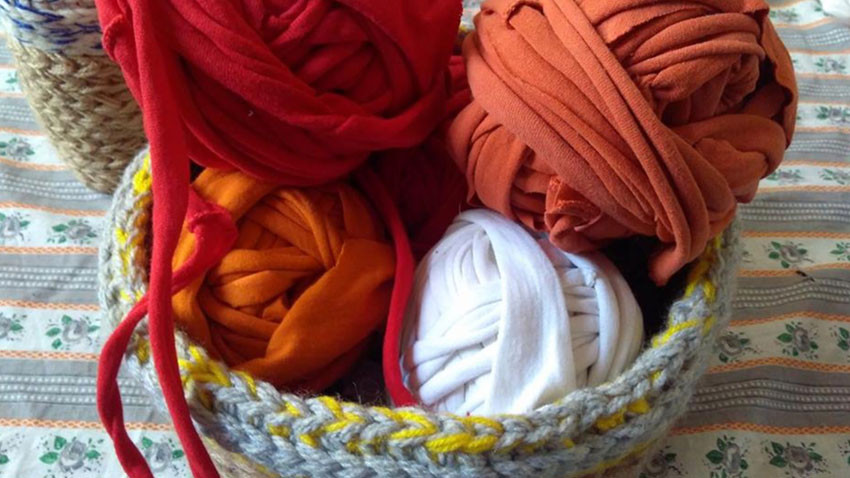
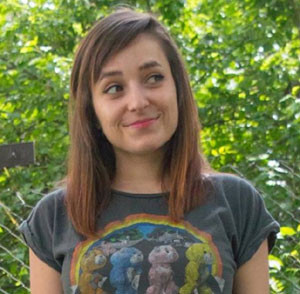 „This is a relatively unfamiliar topic since there has been serious overproduction and over-consumption of textiles only in the past fifteen years”, she adds. “Few people know, however, that textiles can be almost entirely recycled. The most common way to help reduce textile waste is by buying from second-hand shops instead of seeing nice clothes go to the garbage dump. In addition, being a good insulator, textiles can be used in a variety of industries, including the automotive industry..
„This is a relatively unfamiliar topic since there has been serious overproduction and over-consumption of textiles only in the past fifteen years”, she adds. “Few people know, however, that textiles can be almost entirely recycled. The most common way to help reduce textile waste is by buying from second-hand shops instead of seeing nice clothes go to the garbage dump. In addition, being a good insulator, textiles can be used in a variety of industries, including the automotive industry..

In order to dedicate herself to the "Knit with a T-Shirt" cause, Maria quit her job as a criminal psychologist and created her own online store for handmade eco-products. Within only one year she managed to collect nearly 400 kg of old clothes, donate one tenth of them to other organizations, organize four textile recycling workshops, participate in an international conference, win the first place in the "Innovation in Action" contest and, by doing all this, save a huge amount of water, chemicals and harmful emissions. Her most fulfilling achievement, however, is the gEco educational game, which she created in co-operation with child psychologist Preslava Bikovska.
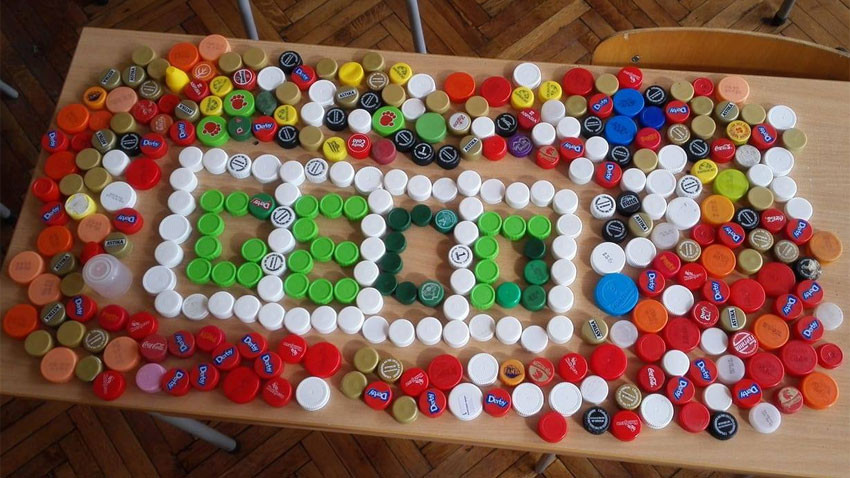
“The game aims to develop ecological behavior in children," Maria Yurukova explains. “For the time being, we practice it by visiting schools, but in the meantime we are raising funds for creating a platform though which the game could be played from a distance. In general, children do not get seriously involved in a process when they are only informed about it whereas in our game we both inform them and we put them inside the process. Thus, they need to carry out real-life missions related to environmental protection, and in the process learn how to keep their environment clean, start to notice the garbage in the streets, to think about where to dispose of it, and not simply to know that the yellow garbage bin serves for the separate collection of some sort of waste.”
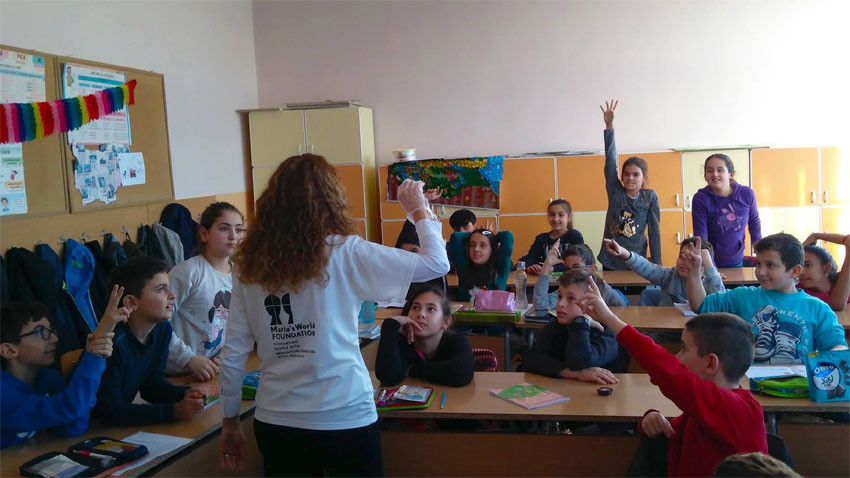
Maria believes that the nature-friendly way of life is a personal choice, which basically comes down to taking care of ourselves. She herself has been purchasing second-hand clothes since she was a teenager and does not understand why people spend so much money if they can find a quality product at a much lower price. At the grocery store, she does her shopping with reusable bags and tries to avoid plastic products.
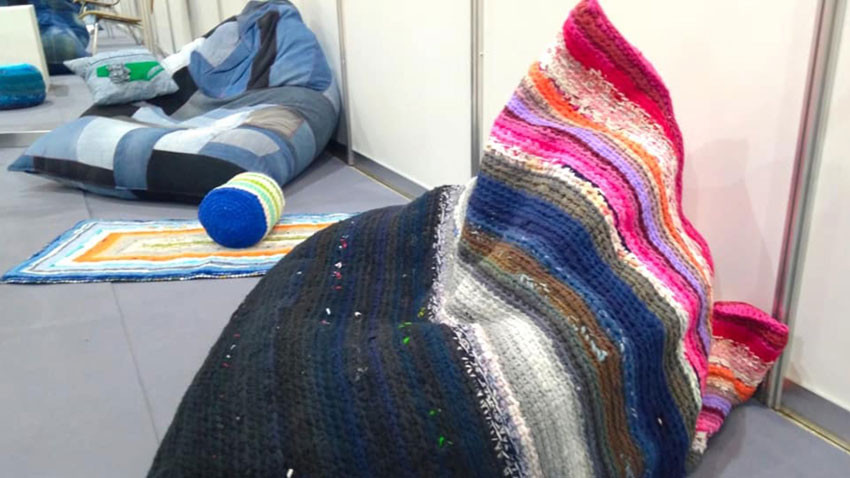
“I believe that public awareness is growing and people are increasingly thinking about their environmental behavior," says Maria. "There is certainly a lot more to be desired, especially with regard to plastics. That's why my campaign aims to form a more responsible consumer behavior, i.e. buying a garment or some object, one should think about whether they really need it, from what shop they buy it, where they will throw away the useless items as time goes by..

If you want to donate your old clothes to Maria, you can easily find her in social networks. This way you will not only take a responsible attitude to nature but will also contribute to creating a little more coziness and beauty around us all.
English: Rossitsa Petcova
Photos: courtesy of Maria YurukovaThe symbol of Easter - the egg dyed in red or other colors has also become a symbol of Bosilegrad. The Serbian town, just a stone's throw from the border with Bulgaria, is inhabited mainly by ethnic Bulgarians, who have been..
More than 30 years after the democratic changes in Bulgaria in 1989, May 1 continues to be a public holiday and a non-working day, but the state authorities are no longer involved in organizing mass events and manifestations, as it..
The days preceding the Orthodox Easter are brightened with smiles and cheerful atmosphere around the world. Students from several Sunday schools abroad have recreated the national traditions and customs associated with the preparation for Easter,..
The days preceding the Orthodox Easter are brightened with smiles and cheerful atmosphere around the world. Students from several Sunday schools..
More than 30 years after the democratic changes in Bulgaria in 1989, May 1 continues to be a public holiday and a non-working day, but..
The symbol of Easter - the egg dyed in red or other colors has also become a symbol of Bosilegrad. The Serbian town, just a stone's..

+359 2 9336 661
